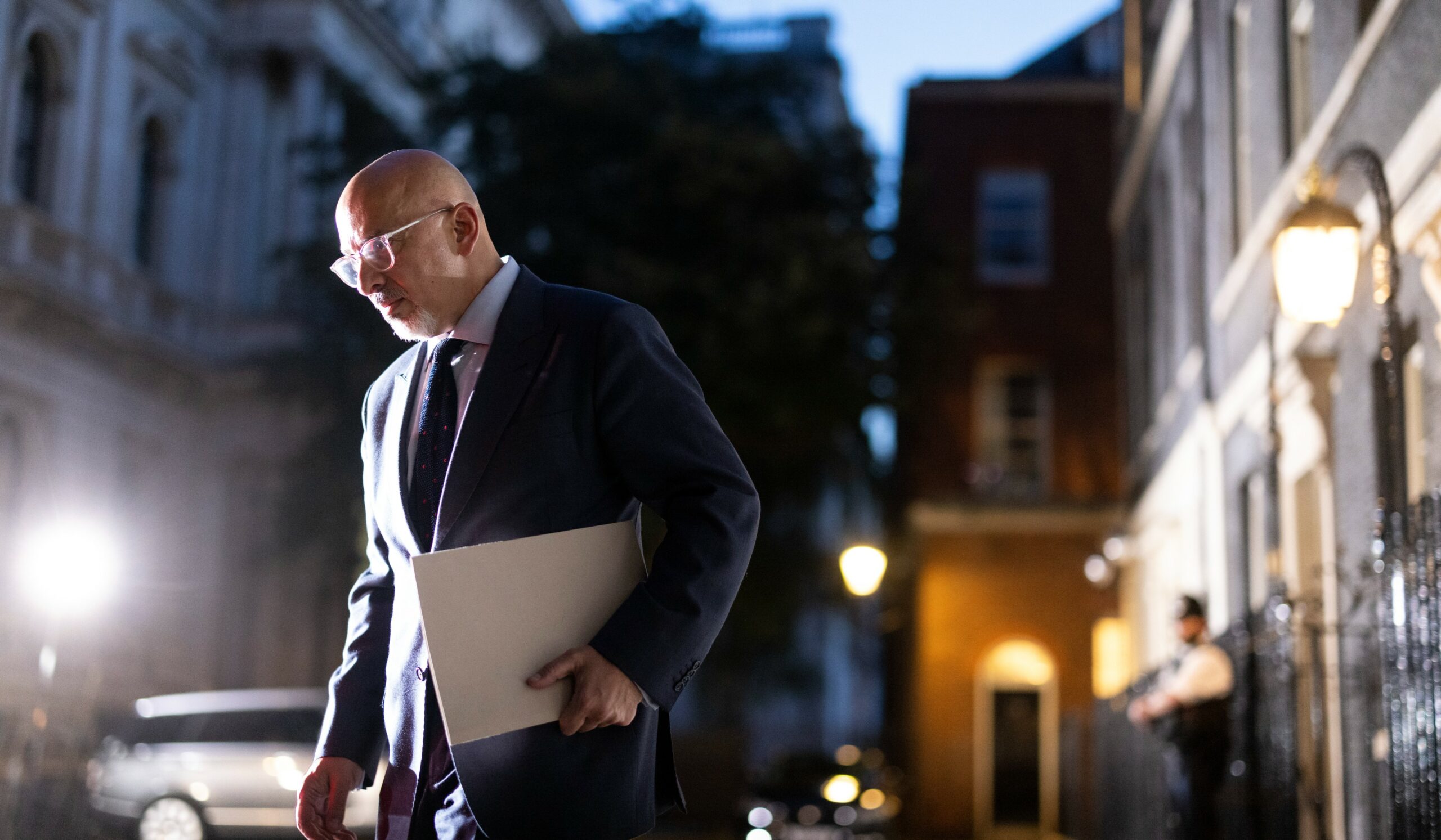 Nadhim Zahbwi leaves Downing Street. Photo: UK Government on Flickr
Nadhim Zahbwi leaves Downing Street. Photo: UK Government on Flickr
Tax scandals, cronyism and revolving doors at the top reveal a government and ruling class steeped in corruption, argues Terina Hine
It has been three months since Rishi Sunak first stood on the steps of Downing Street and promised his government would be one of ‘integrity, professionalism, and accountability’. What a joke. The stench of scandal permeates both his party and his government, and Sunak’s authority is such that there is little he could do about it even if he tried.
The latest outrages involve two chairmen, the Conservative party chairman, Nadhim Zahawi, and the BBC’s newly appointed chair, Richard Sharp. The sleaze that helped bring down John Major’s government back in the 1990s pales into insignificance by comparison.
Zahawi, already implicated in the Cameron Greensill scandal, the same Zahawi who ‘mistakenly’ claimed £5,000 of taxpayers’ money to heat his stables, now finds himself embroiled in a tax row worth millions. To make matters worse, he tried to prevent the probe and the publication of the story with multiple legal threats at Dan Needle, the tax lawyer who led the investigation, and the Independent newspaper.
Failing to hush things up, the story has now rumbled on for over a week, allowing plenty of time for Sunak to show leadership, accountability and integrity. But no. Only now is he beginning to distance himself from Zahawi.
But then Sunak never did act on his fine words. Within days of taking office, he reappointed the disgraced Suella Braverman to one of the great offices of state, ignoring her ‘leaky Sue’ reputation and earlier sacking for revealing classified information. Gavin Williamson was forced to resign over bullying allegations after Sunak had brought him back to government, regardless of two previous sackings. Dominic Raab, also accused of bullying, still sits in the cabinet. And, of course, Sunak himself has the honour of being the first PM to hold office having been awarded two fixed-penalty notices (one received as chancellor, the second issued a few days ago for failing to wear a seatbelt).
These instances certainly reveal a lack of leadership and authority at the top. But the tangled web at the highest level of government, the revolving door between lobbyists, journalists, political advisers and those with political power and influence, hide a depth of corruption that is undermining democracy and revealing a decaying political system.
Culture of corruption
The relationship between Rishi Sunak, Boris Johnson, David Cameron, Nadhim Zahawi and Richard Sharp among others is murky indeed. Sharp was once an adviser to Sunak, and was Sunak’s boss at Goldman Sachs. He is a friend of Zahawi’s and was also an adviser to Johnson when he was mayor of London. Not only did he sort a loan to fund Johnson’s expensive lifestyle, but he also donated £400,000 to the Conservative party. Who better to be chair of the state broadcaster?
As it stands, neither Nadhim Zahawi nor Richard Sharp is quitting his post, and, if they did, another lucrative role would no doubt be waiting in the wings. Their privilege and wealth prevent the disgrace meted out to normal mortals; the system is designed to protect the elite. When it comes to tax, the UK offers a myriad of loopholes and reliefs, hugely expensive and entirely unjustified, but perfectly legal. Sunak’s own wife avoided up to £20m in tax through her non-domicile status. According to the Resolution Foundation there are ‘five terrible tax reliefs’ used by just 70,000 individuals at a cost to taxpayers of around £4 billion a year. But even these legal tax-avoidance measures are not enough for Zahawi.
And once fallen foul of the law, we are far from equal. TaxWatch has calculated that tax fraud has cost the Treasury nine times more than the amount lost to benefit fraud. But this has not prevented the DWP employing more staff in compliance than at HMRC, nor, over the last eleven years, pursuing twenty-three times more criminal prosecutions. The number of criminal prosecutions for tax offences have declined by 39% since 2015.
HMRC policy is to deal with most fraud by civil investigation and settlement rather than criminal prosecution. A policy which has been to the advantage of the Tory Chairman this week. Zahawi was fined over £1m rather than criminalised for his £4.8m financial oversight. This policy contrasts sharply with the strict regime used by the DWP, where every fraud case worth more than £5,000 is referred to the Crown Prosecution Service.
It is not yet the end of January and so far this year, three major pillars of the establishment – the crown, parliament and the police – have been rocked by corruption. Westminster, like the Met, is awash with abuse and corruption claims while the monarchy, with abuse cases of its own, has become the country’s most dysfunctional family. The British state is rotten to its core.
Join Revolution! May Day weekender in London
The world is changing fast. From tariffs and trade wars to the continuing genocide in Gaza to Starmer’s austerity 2.0.
Revolution! on Saturday 3 – Sunday 4 May brings together leading activists and authors to discuss the key questions of the moment and chart a strategy for the left.

